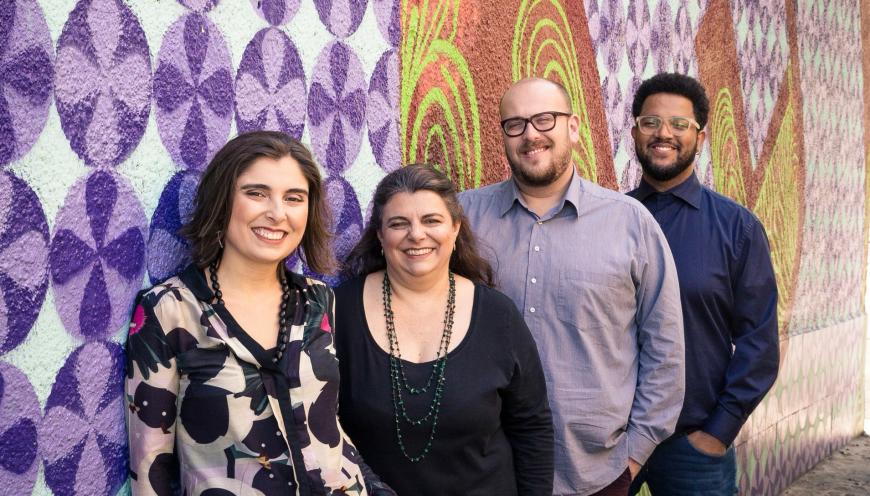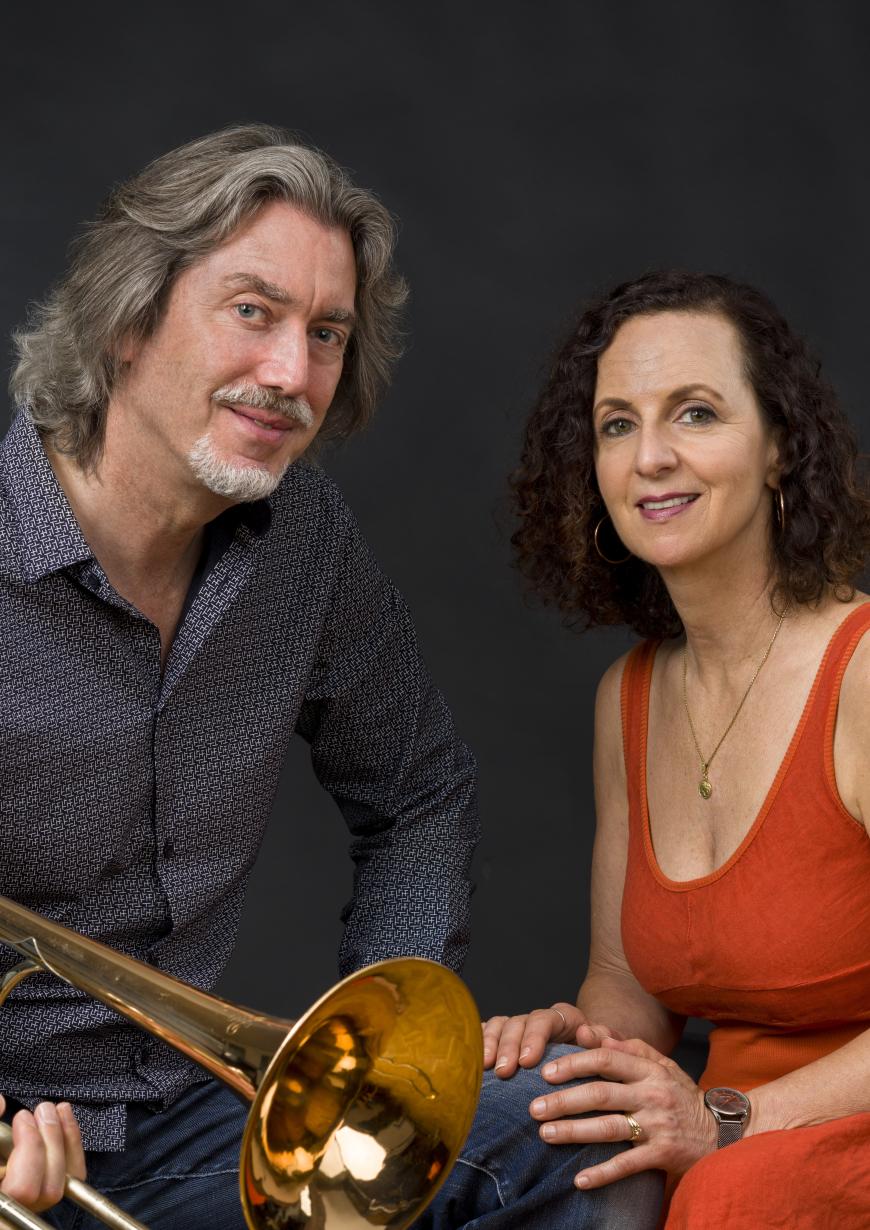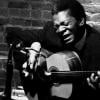
More than any other art form, music is a family affair. In Indian classical music and West African griot cultures, musical lineages can be traced back centuries. The pleasures and perils of parent-and-sibling ensembles have long resounded through clubs and concert halls around the world. So it’s not surprising that a recently struck friendship between two illustrious musical families has led to a fruitful international alliance.
What’s intriguing about the collaboration between the Bay Area’s Cressman clan and São Paulo’s Gurgel aggregation is the way in which the families mirror each other. More than a lovefest between two capaciously talented households, their music-making highlights the deep cultural currents flowing between Brazil and the United States.
The familial meeting first manifests on Feb. 23 at Keys Jazz Bistro in North Beach, where the Dani and Débora Gurgel Quarteto (DDG4) makes its first Bay Area appearance in a decade. The group features Débora, a renowned pianist, composer, and arranger, with her daughter Dani on vocals and Dani’s husband, Thiago “Big” Rabello, on drums, plus Sidiel Vieira on bass.
“This is such an exciting group. Bay Area jazz fans need to know about them,” said Sandy Cressman, a jazz vocalist who’s spent the past quarter century enmeshed in the vast universe of Brazilian music. “As I often mention in my shows and interviews, the DDG4 is my favorite contemporary band from Brazil, and Débora has written quite a few arrangements for my band.”
Sandy and her husband, trombonist and sound engineer Jeff Cressman, a two-decade veteran of Santana and a Latin jazz expert, will be joining the DDG4 as special guests at Keys. On Feb. 25, the DDG4 merges with the Electric Squeezebox Orchestra at the California Jazz Conservatory (CJC) in Berkeley to play music from the Gurgels’ new large-ensemble album, DDG19 Big Band. In a neat circle-closing encounter, Sandy and her daughter, vocalist and trombonist Natalie Cressman, perform with the big band as special guests.
The DDG4 did a weeklong residency at Boston’s Berklee College of Music before heading out to the Bay Area, and the group is also teaching workshops at the CJC and with both the SFJAZZ High School All-Stars and the CJC Studio Band this month.

While Sandy had long adored the DDG4, the families didn’t know each other until Natalie decided to perform some of the Gurgels’ material at her Manhattan School of Music senior recital in 2012. She transcribed the music for their song “Preto e Branco” (music by Portuguese jazz vocalist Sara Serpa and words by Dani) but wasn’t certain about some of the lyrics, so Sandy emailed Dani for sheet music without mentioning her own musical career.
“Sandy was writing me as a mom,” Dani said on a recent video call with Débora.
“When I listened to a recording of Natalie’s performance, I was absolutely in love,” Débora added. “Then I got to know Sandy’s music, and that started a friendship with our whole family with their whole family.”
The emails back and forth led to Sandy facilitating the DDG4’s first Bay Area tour in 2013, when the Gurgels used the Cressmans’ Mission Terrace house as home base. “We hadn’t met yet, and I was worried it could be a little awkward, but from the first it felt like family,” Sandy said.
The Bay Area vocalist has long served as a bridge for American musicians, mostly jazz artists, who are eager to learn from and collaborate with their Brazilian peers. She’s done this informally, like connecting the Gurgels with Oakland venue Yoshi’s and spending summers at California Brazil Camp, the program in Cazadero where she’s translated for classes by celebrated Pernambuco frevo composer and bandleader Spok.
After years of cultivating friendships and creative alliances, Sandy documented the relationships on her 2017 album Entre Amigos, a project featuring new songs with a far-flung cast of Brazilian collaborators, including Spok; the Seattle-based, Rio-born jazz pianist and composer Jovino Santos Neto; and Antonio Adolfo, a veteran Rio piano master who got his start at the center of the early 1960s bossa nova scene.
The album opens with “Como Eu Quero Cantar,” a brisk and alluring melody she wrote with Dani and Débora, “sending iPhone recordings back and forth,” Sandy said. They finished and recorded the piece in São Paulo, “when Débora sat at the piano and arranged the vocals.”

Natalie, whose partnership with Brazilian-born guitarist and composer Ian Faquini has garnered enough acclaim that the two were nominated for Duo of the Year in last year’s Jazz Journalists Association Jazz Awards, has also recorded with the Gurgels. (Natalie and Faquini perform at SFJAZZ’s Joe Henderson Lab on March 28.) She and her mother were in São Paulo last summer, and Dani asked Natalie to be a guest on the Big Band record on “Dá Licença,” another Gurgel tune that the trombonist performed at her senior recital.
“I changed the arrangement to feature her as a soloist,” Débora said.
The influence has soaked into the Bay Area scene. Last week, the Electric Squeezebox Orchestra (ESO) released a new track, “Chrysalis,” engineered by Jeff Cressman and inspired by the northeastern Brazilian baião rhythm, “a Brazilian groove that’s got the clave and a little funkiness,” said trumpeter Erik Jekabson, the ESO’s co-founder and guiding spirit.
Some of the Bay Area’s most incisive improvisers and composers, the ESO players have their work cut out for them tackling Débora’s arrangements, Jekabson said. “The level of musicianship is very high, and it’s inspiring to play with people that accomplished. The charts are super well written, challenging but not crazy hard. Débora gives a lot of space to feature the musicians, and with Squeezebox that’s my goal, to feature everybody who wants to be featured.”
Part of what makes the Gurgels’ music so interesting is the way that Débora writes for her daughter’s voice. Dani is a superb interpreter of lyrics, but she often sings wordless lines while blending with the horns.
“She has a lot of expressions in her voice,” Débora said. “When I compose the songs, I hear her voice. Dani is singing in my head. Sometimes I compose a tune, and I don’t tell her what I think about the mood of the song. When I send the composition to her, she always knows the subject of the song. We have a soul connection that’s not only mother and daughter. It’s more than this.”
The DDG4 is hardly Débora’s only outlet as a composer and arranger. She writes for São Paulo’s Orquestra Jazz Sinfônica, the Tom Jobim Youth Orchestra, the Lilian Carmona Big Band, and Septeto S/A. A flutist as well as a pianist, she’s a dedicated educator who, without much planning or forethought, took her daughter under her wing.
“It was natural because we have music all day inside the home,” Débora said. “There’s no difference from when we are playing, having fun, or studying. We just played all the time. When Dani was a teenager, she told me, ‘OK, music will be my job, not only my passion.’ I started to bring her to play with me. At first just for some songs, and later the whole job playing concerts. The transition was very natural.”




